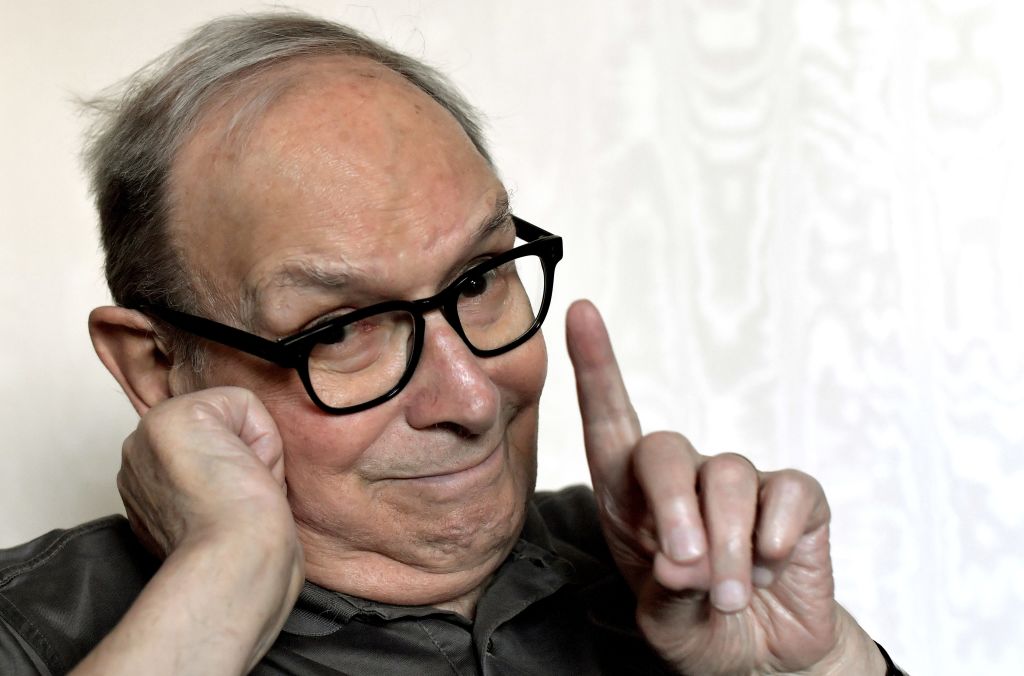Renowned Italian film composer Ennio Morricone has died at 91


A free daily email with the biggest news stories of the day – and the best features from TheWeek.com
You are now subscribed
Your newsletter sign-up was successful
Ennio Morricone, the prolific Italian film composer probably best known for his iconic scores of The Good, The Bad, and The Ugly and other Sergio Leone Westerns, died early Monday at a hospital in Rome. He was 91, and died of complications from a fall last week in which he broke his femur, his longtime lawyer tells The Associated Press.
Morricone scored more than 500 films. He won an Oscar for his score of Quentin Tarantino's The Hateful Eight (2015), an honorary Oscar in 2007 for his "magnificent and multifaceted contributions to the art of film music," a Grammy for his soundtrack to Brian de Palma's The Untouchables (1987), plus 11 David de Donatello Awards, Italy's top cinematic honor. His other famous scores include Cinema Paradiso (1988), The Mission (1986), and The Battle of Algiers (1966). He also got an international hit with "Chi Mai," the theme for the 1981 BBC drama The Life and Times of David Lloyd George.
But it was The Good, The Bad, and the Ugly and his other six films for Leone that put Morricone on the cinematic map — and set the musical template for "spaghetti Westerns" and cowboy movies in general.
The Week
Escape your echo chamber. Get the facts behind the news, plus analysis from multiple perspectives.

Sign up for The Week's Free Newsletters
From our morning news briefing to a weekly Good News Newsletter, get the best of The Week delivered directly to your inbox.
From our morning news briefing to a weekly Good News Newsletter, get the best of The Week delivered directly to your inbox.

Morricone was born in Rome in 1928, the son of a trumpet player. He began writing music at age 6 and met Leone for the first time when he was about 8, The Hollywood Reporter reports. He studied composition at the Santa Cecilia Conservatory and got his start in film after World War II, in the Italian film Renaissance at Rome's Cinecittà. "Most of these scores were very ugly, and I believed I could do better," Morricone explained in 2001. "I needed money, and I thought it would be a good thing to write film scores."
Morricone used harmonicas, church bells, whistles, whips, animal noises, clocks, and other non-traditional instruments in his scores. "All kinds of sounds can be useful to convey emotion," he said. "It’s music made up of the sound of reality." But his scores were also often lush and melodic, like his Cinema Paradiso soundtrack and The Mission.
Morricone's "music is indispensable," said Leone, who died in 1989, "because my films could practically be silent movies, the dialogue counts for relatively little, and so the music underlines actions and feelings more than the dialogue."
A free daily email with the biggest news stories of the day – and the best features from TheWeek.com
Peter has worked as a news and culture writer and editor at The Week since the site's launch in 2008. He covers politics, world affairs, religion and cultural currents. His journalism career began as a copy editor at a financial newswire and has included editorial positions at The New York Times Magazine, Facts on File, and Oregon State University.
